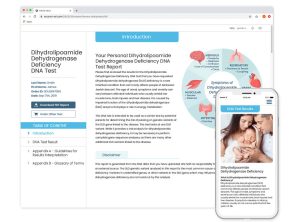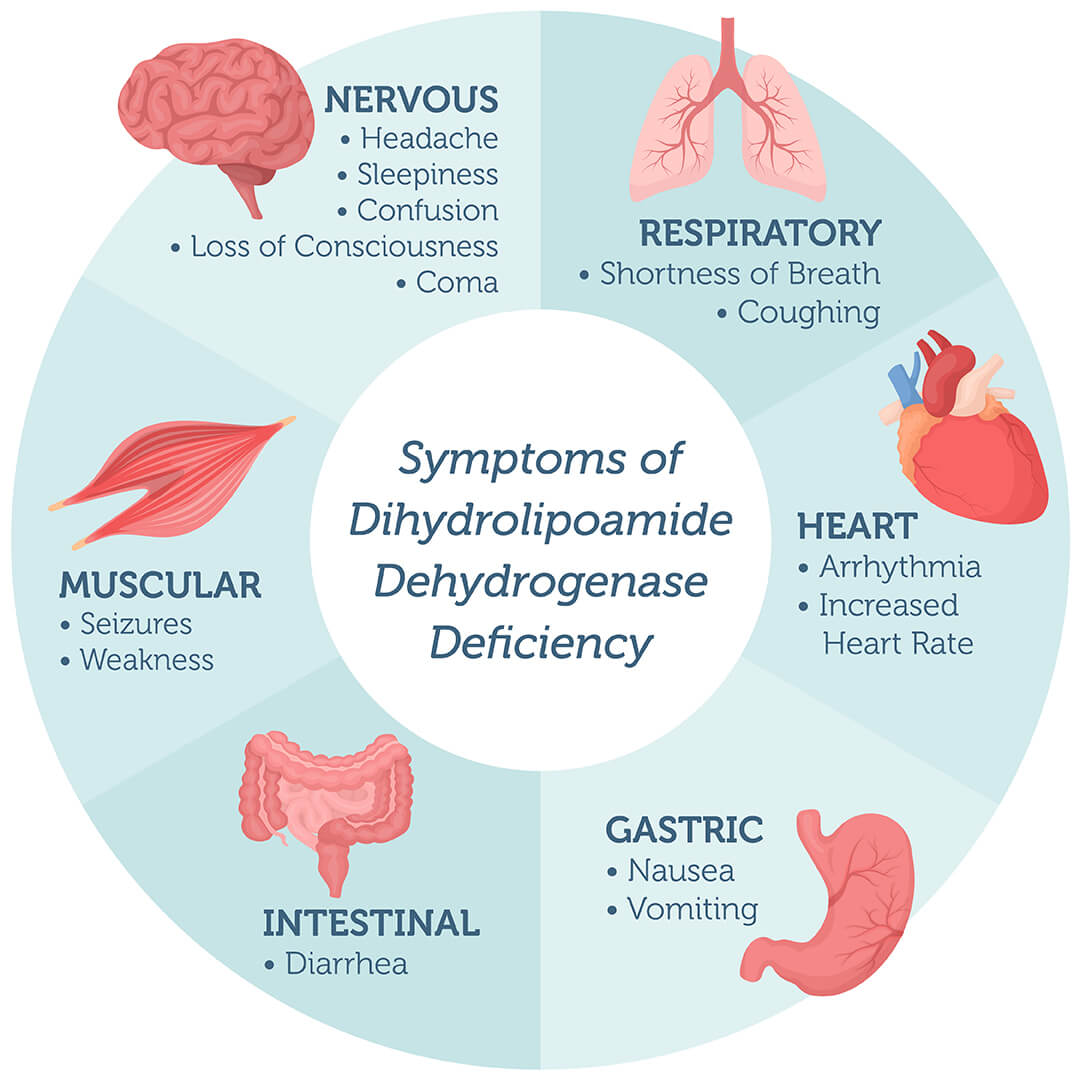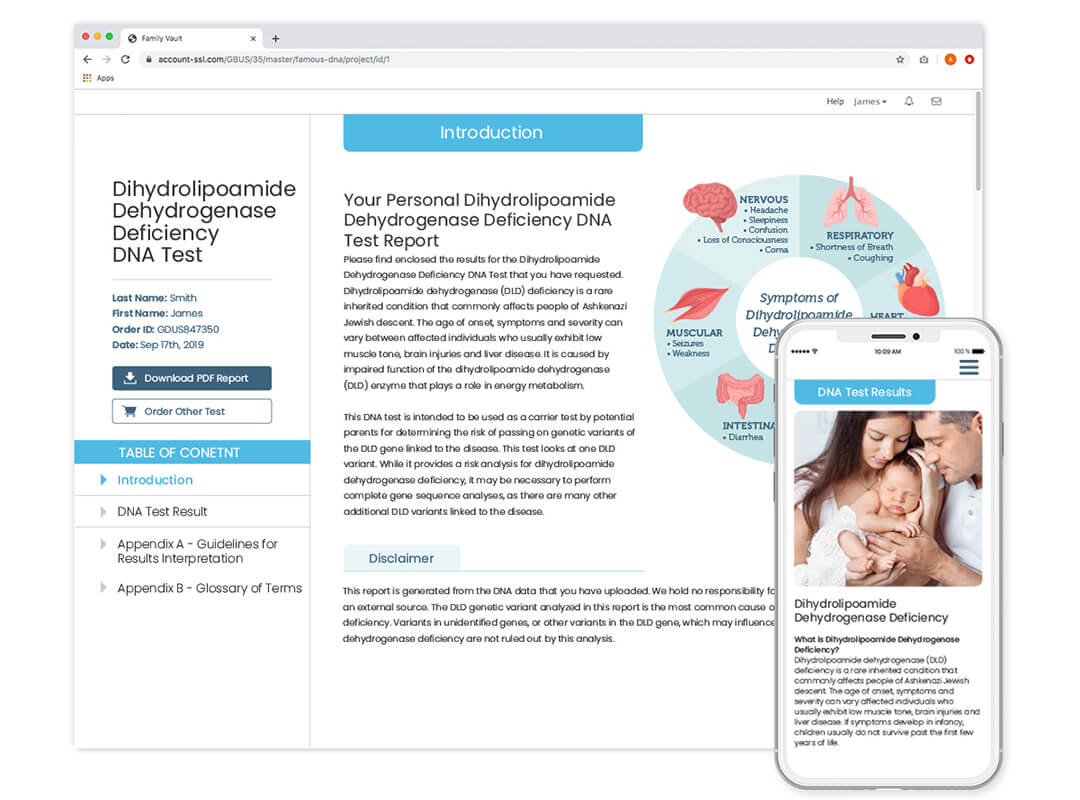Dihydrolipoamide Dehydrogenase Deficiency
Are you a genetic carrier for dihydrolipoamide dehydrogenase deficiency? Find out with this DNA Test.
- Detects the most common variant of the DLD gene linked to dihydrolipoamide dehydrogenase deficiency
- Carrier screening test intended for couples who are planning to become pregnant
- Determine the risk of your child inheriting DLD deficiency
- 100% private and confidential online results
Already have DNA markers? Sign in and upload your data to view results.
Need to take the DNA Test? Order our easy-to-use swab kit.
Detailed Description
Dihydrolipoamide dehydrogenase (DLD) deficiency is a rare inherited condition that commonly affects people of Ashkenazi Jewish descent. The age of onset, symptoms and severity can vary between people who usually exhibit low muscle tone, brain injuries and liver disease. If symptoms develop in infancy, children usually do not survive past the first few years of life.
DLD deficiency caused by impaired function of the dihydrolipoamide dehydrogenase (DLD) enzyme, which is a component of three other enzyme complexes. Without properly functioning DLD enzyme molecules usually broken down by these enzymes accumulate in the body damaging tissues. A majority of the damage is caused by the build up of lactic acid in cells (lactic acidosis) as it affects the acidity in the internal environment.
Take this test to find out whether you are a genetic carrier of the DLD gene variant and are at risk of passing it to your children. This is intended to be a carrier screening test for couples who are considering to start a family.


The Genetics
Dihydrolipoamide dehydrogenase deficiency is caused by genetic variation in the DLD gene. The DLD protein is a component of three different enzyme complexes involved in energy metabolism. Without functional DLD enzyme the molecules and byproducts accumulate in cells leading to damage. In addition, it decreases the amount of energy generated by cells.
It is inherited in an autosomal recessive pattern, which means two defective copies of the DLD gene must be inherited in order for the disease to manifest.

Symptoms of Early-Onset DLD
- Decreased muscle tone (hypotonia)
- Extreme tiredness (lethargy)
- Difficulty feeding
- Decreased alertness
- Seizures
- Build up of lactic acid (lactic acidosis)
- Growth delays
- Intellectual disabilities
- Muscle stiffness (spasticity)
- Difficulty coordinating movements (ataxia)
Symptoms of Late-Onset DLD
- Liver problems
- Recurrent vomiting
- Abdominal pain
- Enlarged liver (hepatomegaly)
- Weakness in their skeletal muscles (muscles used for movement)
- Droopy eyelids
- Cardiomyopathy (weak heart muscles)
How It Works
Step 1: Sign up for a free Genebase account.
Step 2: Upload your DNA markers to Genebase.
Step 3: Login to your account to access your results when they are ready.


